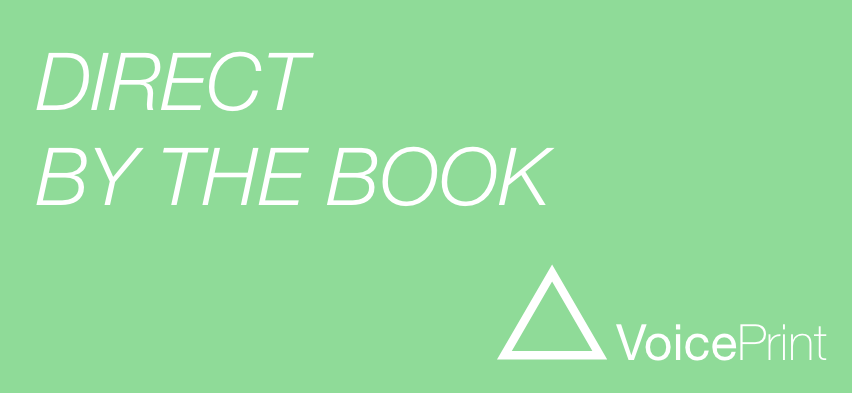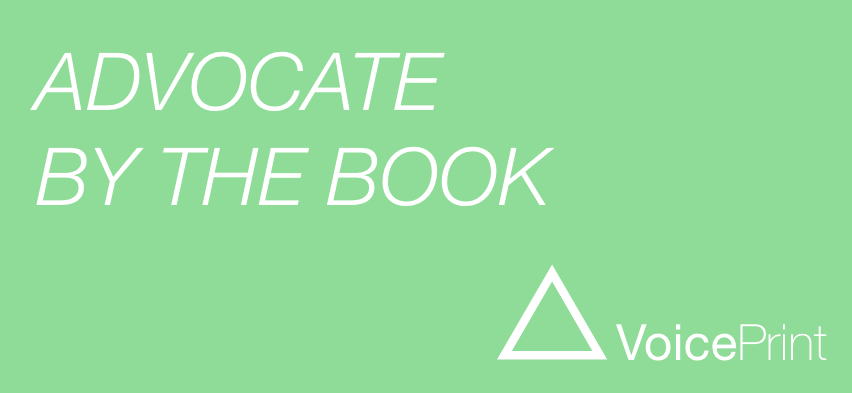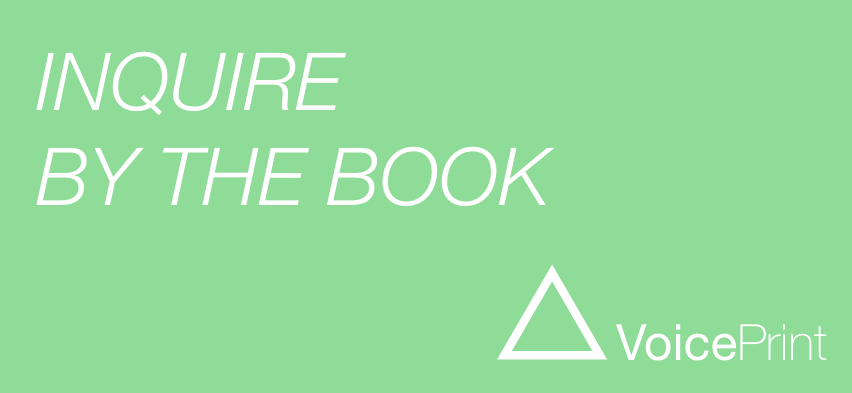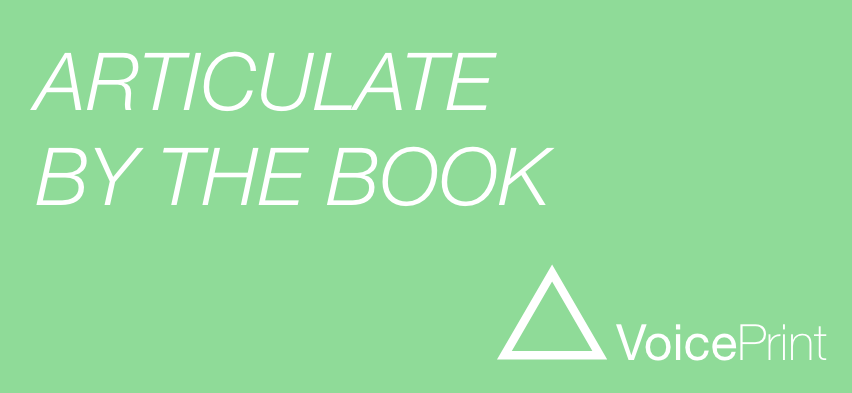
Her distinctive black eye patch made Marie Colvin the most immediately recognisable reporter of her generation. If you don’t already know the story of this remarkable human being, I recommend In Extremis, the biography by her professional colleague and friend, Lindsey Hilsum. But if you want an outstanding book to illustrate the Articulate voice on action, look no further than In The Front Line, the single, substantial volume of Colvin’s own collected journalism.
The function of the Articulate voice is to describe and clarify in a precise, neutral, matter-of-fact way. It is the voice that combines and summarises other inputs. If that definition makes it sound dry, or even rather dull, by comparison with the other voices in the VoicePrint model, then Marie Colvin’s prose will quickly correct the misapprehension, revealing the Articulate voice as a powerful form of action in its own right.
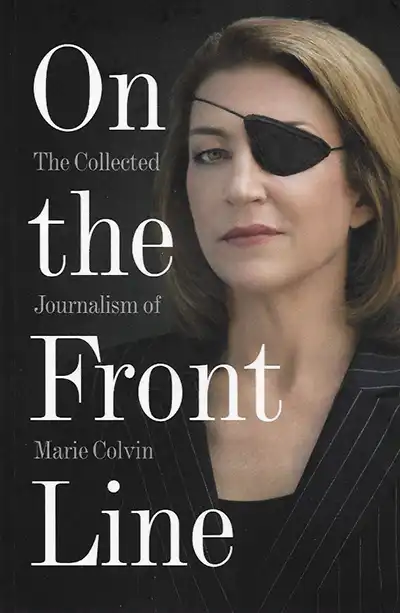
Take this example from a first-hand report that she wrote in April 2002.
‘The first medical teams allowed into the Jenin refugee camp last week followed the chickens. Human senses were overwhelmed by the devastation and the stench of death, but the birds were not distracted. They were hungry. Two rusty-coloured fowl pecking away at a bundle in the street drew a Red Cross team to the remains of Jamal Sabagh.
He wasn’t really recognisable to an untrained eye. His body had been lying there for more than a week. The Israeli army had banned ambulances from the camp for 11 days, and neighbours were too terrified to go to him.
Tank tracks led to his body, over it and onwards through the mud. What had once been a young man was rotting flesh mingled with shredded clothing, mashed into the earth. One foot was all that looked human…’ (p224)
Extracts do not do justice to the thoroughness and quality of Marie Colvin’s work. You need to read her pieces in full to appreciate the great care with which they were written. And what becomes immediately apparent is that, although her reporting came from places that were threatened or torn apart by war and strife, and although her subject matter was – and was clearly intended to be – disturbing and shocking for the reader, her voice was not sensationalist, not over-coloured or exaggerated, but consistently measured, serious-minded and lucid.
It is what the Articulate voice should be.
The subjects that she wrote about matter. They mattered then and they matter still. That will always be the principal reason for reading what Marie Colvin wrote. At the same time, I think she reveals something about how to become a truly accomplished user of the Articulate voice.
Three themes seem to me to run through her journalism and the way she lived her life as a reporter:-
- Being present
- Bearing witness
- Showing courage
Let me illustrate each before I suggest how they combine into a very special and desirable quality.
Being Present
For a start, she was there. In person, in the places and in the presence of the crises she described. Kosovo, Chechnya, Sierra Leone, East Timor, Iraq, Afghanistan, Sri Lanka, where she lost her eye, Israel, Palestine, Egypt, Libya and finally Syria, where she lost her life.
A first-hand account gives the Articulate voice presence and credibility.
And grammatically the present tense – you might almost call it the tense present – runs through her writing. The first time I actually noticed a future tense was on page 433 and it was so unusual that it pulled me up short, when she wrote from Tehran, ‘Yesterday’s bloodshed will polarise the situation.’ But even then she was speaking from the middle of the situation. She was in that moment.
Being present is an essential part of the Articulate voice. It describes what is happening, putting it into the context of what has already happened, but giving much less attention to what might happen. It holds attention when it speaks in and of the here-and-now.
Marie Colvin’s voice was also always on point. The sentences are concise, the paragraphs are clear, the descriptions are stripped back to the informative essentials. ‘A key aspect of the US strategy is to make working for the state more attractive than taking the Taliban’s shilling. Yet there was no sign of the wage increase to $165 that the government had announced. Meanwhile, the Taliban pay $220 a month.’ (p409)
Being present keeps the Articulate voice from going on unnecessarily.
Bearing Witness
Asked why she covered wars, she said, ‘I did not set out to be a war correspondent. It has always seemed to me that what I write about is humanity in extremis, pushed to the unendurable and that it is important to tell people what really happens in wars – declared and undeclared.’ (p199)
Colvin’s voice was always located, in time and place, and in the predicaments faced by particular individuals and groups of people. Her writing consists first and foremost of verbs and nouns, the words that describe actions, the people involved in those actions and their impacts. Her use of adjectives is lean and serves not to embellish her account, but to tie the action to the specific case, to make it attributable.
Bearing witness permits you to be matter-of-fact without becoming devoid of compassion. It’s how the Articulate voice can connect us to one another by explicitly naming the people concerned and their perspectives. It gives those people respect and encourages others to do likewise.
Take an extract from her final despatch.
‘They call it the widows’ basement. Crammed amid makeshift beds and scattered belongings are the frightened women and children trapped in the horror of Homs, the Syrian city shaken by two weeks of relentless bombardment.
Among the 300 huddling in this wood factory cellar in the besieged district of Baba Amr is 20-year old Noor, who lost her husband and her home to the shells and rockets.
“Our house was hit by a rocket so 17 of us were staying in one room,” she recalls as Mimi, her three-year-old daughter, and Mohamed, her five-year-old son, cling to her abaya.
“We had nothing but sugar and water for two days and my husband went to try to find food.” It was the last time she saw Maziad, 30, who had worked in a mobile phone repair shop. “He was torn to pieces by a mortar shell.” (p 519)
If humanity as a whole is ever to find its objective voice, it will be through people like Marie Colvin.
Listen as she recounts the stories of others who suffered, like Nina in the West Bank (p15), or Heider in Chechnya (p139), or Xhavet in Djakovica (p119) or Emanuel in Zimbabwe (p177), or scores of others whose voices were witnessed, amplified and brought to the world’s attention by Marie Colvin.
The provider of the Articulate voice ensures that others’ voices do not get lost in the noise.
Having Courage
Marie Colvin did her reporting from locations which were among the most dangerous places on the planet at the time. That takes courage, but as she said, ‘Going to those places, finding out what is happening, is the only way to get at the truth.’ (p212) And the risks to herself seldom featured in her reports. She was not the story.
She was physically brave, but more fundamentally she had moral courage. Truth, they say, is the first casualty of war, but she was always determined to rescue and succour that casualty.
Contrast that with the partiality, misrepresentation and actually fake news with which we have to contend. But these are not new problems. In a piece from Cairo in February 2011, Colvin wrote:
‘State television was disintegrating too. The shouts from the crowd demonstrating outside its headquarters became so loud they could be heard on air. A young woman presenter collapsed on screen, practically weeping. “We are in chaos here,” she said. “I am so sorry. We have been telling you things that are not true. Now we can tell the truth.” (p456)
Among the positioning voices, Advocate can be personal, opinionated and partial; Advise likewise can adopt an angle to propose a recommendation; but Articulate needs to be different. Articulate needs to take a bigger stance, a more balanced view of the situation.
It can take courage to provide that voice. As Marie Colvin noted in a report from Palestine,
‘To get an objective idea of what happened in Jenin requires an almost forensic investigation, weeding out lies and half truths and the rumours that a stunned and terrified population has come to believe are true. By doing so, I have come to conclusions that are unlikely to satisfy the propagandists of either side.’ (p226)
It’s an observation which reminds us that the Articulate voice – like all the voices – cannot long operate in isolation. To arrive at its exposition, Articulation is likely to need the prior contributions of the exploring and evaluating voices. And yet at the same time it highlights the distinctive role that the Articulate voice plays as the culmination of the process, at the point when truth needs to be spoken aloud.
Those of us who know how fragile this quality can be, even in the comparative safety of organisational life, might perhaps reflect on the example set by Marie Colvin’s courage in speaking up.
A Final Reflection: on what emerges from these practices
While being present, bearing witness and having courage are three foundations for a strong Articulate voice, they combine – as I think Marie Colvin’s journalism shows – to produce an even bigger effect. They make the speaker trustworthy. And that is surely a quality which we would wish every speaker to deserve.
Alan Robertson
April 2020
Ready for a conversation?
